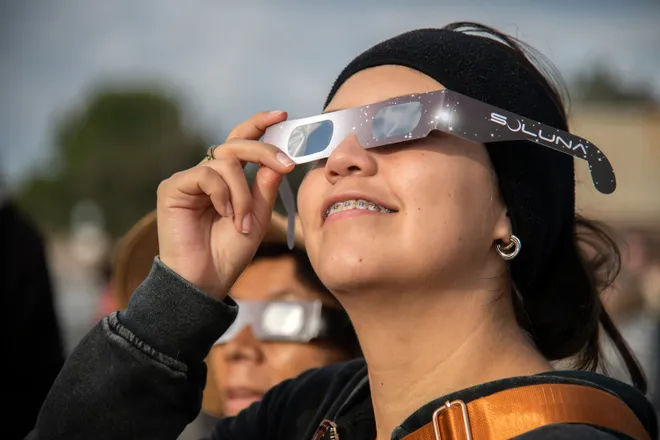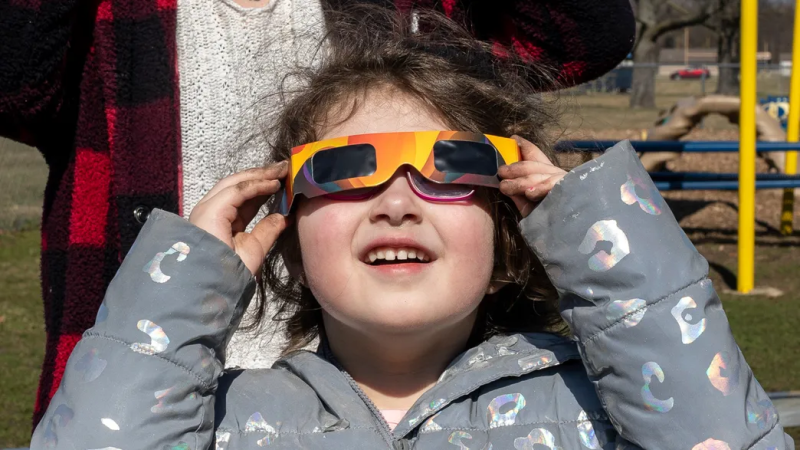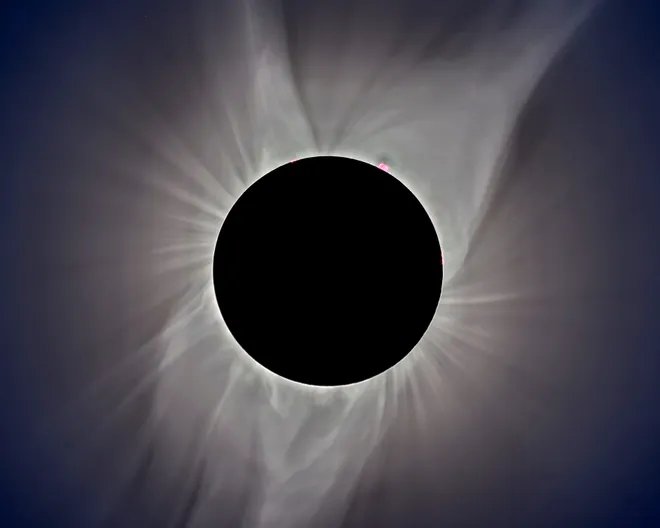What happens during a total solar eclipse? What to expect on April 8, 2024.
The buildup to the total solar eclipse of April 8 continues to grow, as millions of Americans prepare to be wowed by the cosmic alignment of Earth, moon and sun.
And while the entire continental U.S. has a chance to see the moon clip the sun in the sky, only people within the narrow path of totality will get the full experience. If you're lucky enough to see the total eclipse that day, maybe you're wondering "what actually happens during those few minutes of totality ... what will I see and experience?"
During totality, when the moon completely covers the sun, NASA recommends that you take a few seconds to take a close look at the world around you:
"You may be able to see a 360-degree sunset. You may also be able to see some particularly bright stars or planets in the darkened sky. The air temperature will drop and often an eerie silence will settle around you," NASA said.
Unless you're near crowds of people, that is, in which case you'll likely hear plenty of cheering and shouting.
Is the April 2024 eclipse safe for pets?Why experts want you to leave them at home.
"It is also worth stealing a peek at the people around you – many people have a deep emotional response when the sun goes into totality," the agency said.
Eclipse glasses not needed during totality
During totality, you can look directly at the sun without your eclipse glasses. You can see the sun’s brilliant white corona, or outer atmosphere, shining all around the moon’s black disk. Notice the shape of the corona and any long “streamers” extending across the darkened sky.
Another phenomenon, known as shadow bands, can be seen racing along landscapes in the path of totality as the last slivers of observable sunlight are blocked by the moon, depending on where you choose to observe the eclipse.

And if it's a clear day, the temperature may drop by as much as 8 degrees during the total eclipse, meteorologist Dylan Federico of FOX4 in Dallas, said.
What happens in space during an eclipse?
The sun, moon and earth align perfectly, and the huge distances between the massive spheres create a narrow shadow of totality on Earth. A graphic explains how it works:
Odd animal behavior
Keen observers will also notice odd animal behavior during totality: "Most people report seeing unusual activity going on, birds twittering as if they're going to return to roost for the night and actually flying back to trees to roost in places,” Philip D. Nicholson, a professor of astronomy at Cornell University, told the Ithaca Journal, part of the USA TODAY Network.

“Some other animals are affected as well, but I think birds are some of the most notable to see," he said. "They do various things they’d normally do at nighttime, and people attentive to those things know the difference.”
And researchers have observed all sorts of unusual animal behavior at zoos: Flamingos gathered in a circle around their babies to protect them. Giraffes began galloping around their enclosure. Swarms of birds large enough to appear on radar suddenly left the sky and roosted in trees. Gorillas marched to their dens, expecting their final meal of the day. The ancient Galapagos tortoises started mating.

Contributing: Jacob Mack, the Ithaca Journal; Elizabeth Weise, USA TODAY
Disclaimer: The copyright of this article belongs to the original author. Reposting this article is solely for the purpose of information dissemination and does not constitute any investment advice. If there is any infringement, please contact us immediately. We will make corrections or deletions as necessary. Thank you.




